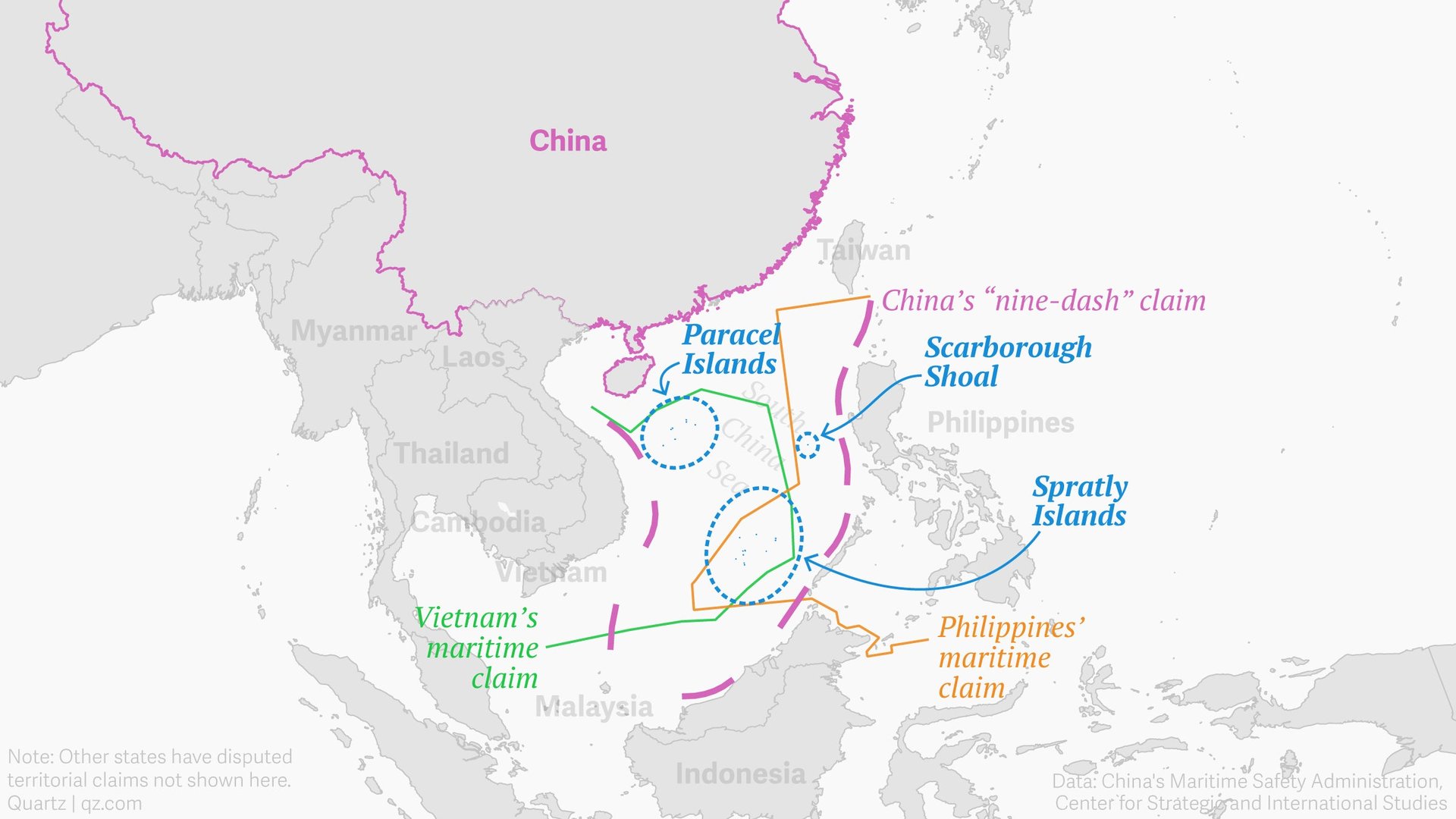South China Sea: Beijing won’t give up “even one inch” of the territory it claims
With tensions mounting over its increasingly assertive actions in the South China Sea, China just made clear that its position isn’t about to change. Meeting US defense secretary James Mattis in Beijing yesterday, Chinese president Xi Jinping said, “we cannot lose even one inch of the territory left behind by our ancestors.” He added, “what is other people’s we do not want at all.”


With tensions mounting over its increasingly assertive actions in the South China Sea, China just made clear that its position isn’t about to change. Meeting US defense secretary James Mattis in Beijing yesterday, Chinese president Xi Jinping said, “we cannot lose even one inch of the territory left behind by our ancestors.” He added, “what is other people’s we do not want at all.”
Those statements are no doubt galling to those familiar with international law.
China claims nearly the entire South China Sea, using as justification its “nine-dash line,” which encircles most of the waterway. Problematically, the line intersects with the exclusive economic zones (EEZs) of other nations. According to the United Nations Convention on the Law of the Sea (Unclos), within the EEZ a coastal nation has sole rights to (pdf, p. 37) the natural resources in the water (fish, for instance) and below the seabed (oil and natural gas). The zone extends out 200 nautical miles (370 km, 230 miles).

China has repeatedly discouraged nations in the region, including Vietnam and the Philippines, from exercising these exclusive rights in areas that fall within both their EEZs and China’s claimed territory.
In May, Beijing issued a stark warning to Russian energy giant Rosneft after it started drilling for natural gas, with Hanoi’s blessing, in an area falling within both Vietnam’s EEZ and China’s nine-dash line. In 2011, Chinese patrol vessels nearly rammed a survey ship that was operating, with Manila’s permission, in Reed Bank, an oil-rich area that falls within both the Philippines’ EEZ and the nine-dash line
China’s legal justification for such behavior is shaky, to say the least. In July 2016, an international tribunal in the Hague invalidated the country’s sweeping claims to the sea in a ruling containing nearly 500 pages. Beijing dismissed the legal proceedings.
Meanwhile China has forged ahead with its militarization of the sea. Earlier this year it installed anti-ship cruise missiles and surface-to-air missile systems on its fortified outposts in the Spratly archipelago. One of them, Mischief Reef, is just 217 km (135 miles) from the coast of the Philippines’ Palawan island.
The Philippines initiated the case resulting in the 2016 ruling. But by the time the tribunal announced its decision, the nation had a new president, Rodrigo Duterte. The mercurial leader essentially ignored the ruling and sought greater cooperation with China, missing a key chance to rally international pressure against Beijing.
Earlier this year, Duterte sparked patriotic outrage by backing the idea of joint exploration with China for oil within the Philippines’ EEZ.
“It’s like co-ownership,” he said. “It’s like the two of us would own that.”
The idea, of course, came from China—the country that does “not want at all” what belongs to other people.